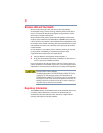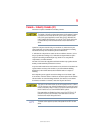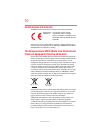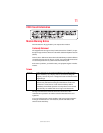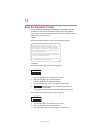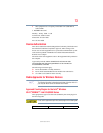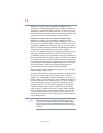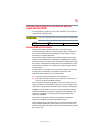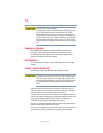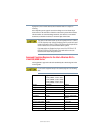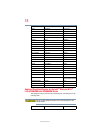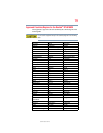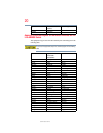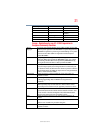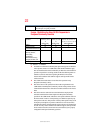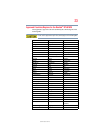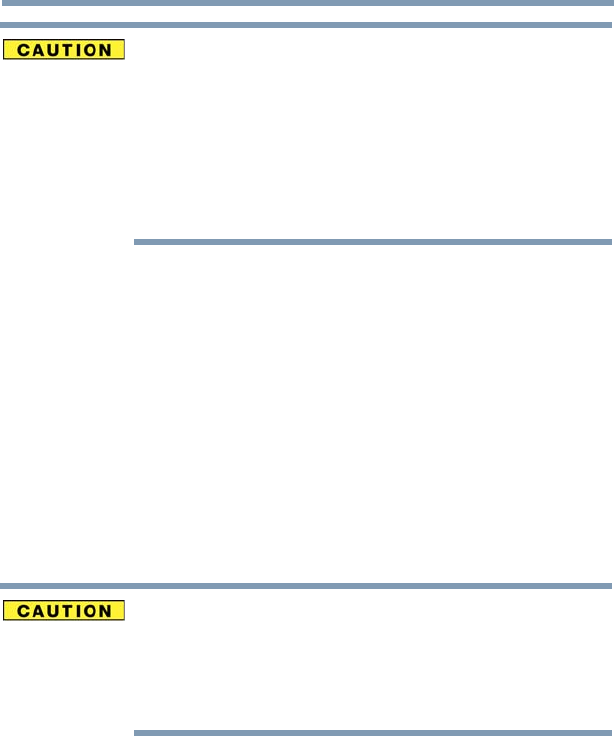
16
5.375 x 8.375 ver 2.3
Exposure to Radio Frequency Radiation
The radiated output power of the TOSHIBA Wireless WAN Card is far below
the FCC radio frequency exposure limits. Nevertheless, the TOSHIBA
Wireless WAN Card shall be used in such a manner that the potential for
human contact during normal operation is minimized. The antenna(s) used
for this transmitter must not be co-located or operating in conjunction with
any other antenna or transmitter. Antenna(s) used in 5.15 GHz to 5.25 GHz
frequency band must be integral antenna which provide no access to the end
user.
Regulatory Information
The TOSHIBA Wireless WAN Card must be installed and used in strict
accordance with the manufacturer’s instructions as described in the user
documentation that comes with the product. This device complies with the
following radio frequency and safety standards.
CE Compliance
CE Compliance does not apply to systems with Wireless WAN (3G) modules
installed.
Canada – Industry Canada (IC)
Wireless WAN complies with RSS-129, RSS-133 Industry Canada.
The installer of this radio equipment must ensure that the antenna is located
or pointed such that it does not emit RF field in excess of Health Canada
limits for the general population; consult Safety Code 6, obtainable from
Health Canada’s Web site www.hc-sc.gc.ca/rpb. The RF device shall not be
co-located with any other transmitter that has not been tested with this
device.
Operation is subject to the following two conditions: (1) this device may not
cause interference, and (2) this device must accept any interference, including
interference that may cause undesired operation of this device.
L’utilisation de ce dispositif est autorisée seulement aux conditions suivantes: (1)
il ne doit pas produire de brouillage et (2) l’utilisateur du dispositif doit étre prêt à
accepter tout brouillage radioélectrique reçu, même si ce brouillage est
susceptible de compromettre le fonctionnement du dispositif.
The term “IC” before the equipment certification number only signifies that the
Industry Canada technical specifications were met.
To prevent radio interference to the licensed service, this device is intended to be
operated indoors and away from windows to provide maximum shielding.



